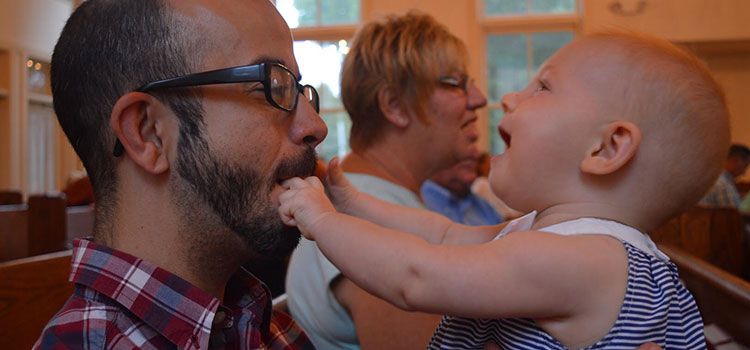
What To Expect
Frequently Asked Questions
8AM SPOKEN WORD SERVICE
Worship at 8:00am is a shorter (45 min.) less “formal” service, often favored by families with younger children. We do not use songs from the hymnal or follow the entire liturgy. Pastor does sermons for children and adults, and there are no assigned responsibilities. People step up to help with lighting the candles, doing the readings and assisting Pastor with communion. It’s church, just a bit less formal.
10AM TRADITIONAL SERVICE.
We worship using what’s called a traditional liturgy, an ancient way of worship in four parts.
GATHERING We gather in prayer and uplifting music. We have a choir, an organist, and guest musicians. We also take a few minutes each service to say hello in the passing of the peace.
WORD We hear different stories from Scripture and the pastor preaches a sermon connecting those stories to our lives.
MEAL We celebrate a sacrament called Holy Communion where we retell the story of Jesus’ saving grace the way Jesus commands us to do - namely by eating bread and drinking wine (or gluten free wafers and white grape juice!)
SENDING We end with Jesus’ command to go into the world bringing peace, hope, and love in the name of Jesus.
Yes! We meet regularly on Thursday evenings at 7pm on Zoom and in-person at 9am about once a month. Check the calendar for upcoming dates!
At church we celebrate Holy Communion, a holy meal of bread and wine (or gluten free wafers and grape juice) that we believe Christ is present in and for, and that all people are welcome to receive. It’s not necessary for you to have the right religion or background in order to participate, Christ simply invites you. Everything God does is wrapped up in a promise for all people – that God loves us and is always there for us. Period. Communion is one way that God shows us that promise.
We live in a world where people are no longer asking: “What kind of Christian are you?” but rather “Where is God? Show me.”
For too long, churches have responded to people longing and searching for God by telling them what denomination they are, their history, and who their ancestors were. We are trying not to do that. So, if you are looking for God, let us show you where we find God in our tradition.
Lutherans believe God comes to us and not the other way around. We believe that God is incredibly in love with us and with this world, and will go to the furthest ends of the universe to be in relationship with us – even dying on a cross. Admittedly, we don’t always have that same commitment back. But nonetheless, it’s simply who Christ is: love poured out from the heavens; grace freely given. Not because of how good we are but because of how good God is.
Many churches and religions teach that you need to do something first to be loved by God. Rather, we believe that God loves us first – most visibly in the person of Jesus, and it’s his love for us that inspires us to make changes in our lives that shape us to be more loving and compassionate to those around us.
The name Lutheran comes from our namesake Martin Luther – an important theologian from the 16th century who sought to reform the church at a time when the church was taking advantage of it’s members. In fact he is often credited as one of the most famous church reformers in history, and it’s his legacy of reformation that still exists within our church. We believe that we can always do church better. We can always love more fully. We can always exist more faithfully. And we continually seek ways that God is reforming our church right now. Change doesn’t scare us – it inspires us.
